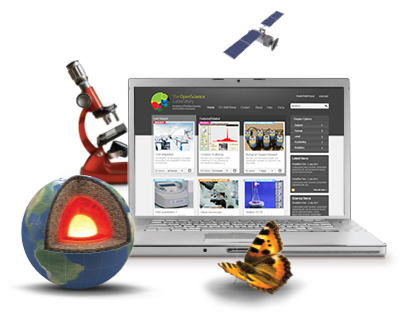Education online: the virtual lab
July 21, 2013

Open Science Laboratory (credit: Open University)
Universities around the world are rushing to partner with the major MOOC companies in a move that many believe could revolutionize higher education, Nature News reports.
But for many people working in education, MOOCs do not yet take the revolution far enough. Practical skills have to be acquired through experience. They require the hands-on, problem-solving activities that have traditionally been the domain of laboratory courses, field trips, internships and, eventually, project work in the lab of a more senior academic.
Bringing such experiences online is tricky, but education-technology researchers have been making substantial progress over the past decade, thanks to smartphones, immersive gaming software and other rapidly evolving technologies.
Today, almost all the lab work is available online through the Open University’s OpenScience Laboratory. Just like many working scientists, students can collect real data from remotely controlled instruments — among them a γ-ray spectrometer for identifying elements and isotopes, and a 0.43-metre telescope in Majorca, Spain. Students can also explore real data with simulated instruments such as the virtual microscope, with which they look at high-resolution images instead of real specimens.
Paulo Blikstein, director of the Transformative Learning Technologies Lab at Stanford University in California, is going further, with a new generation of digital lab courses. One example uses remotely controlled instruments at a centralized biology lab
Michael Schatz, a physicist at the Georgia Institute of Technology, created Introductory Physics I with Laboratory, a MOOC devoted to the elementary science of motion. One of the first MOOCs to thoroughly integrate hands-on learning, it relies on the fact that these days, virtually every student is walking around with a camera-equipped smartphone. […]